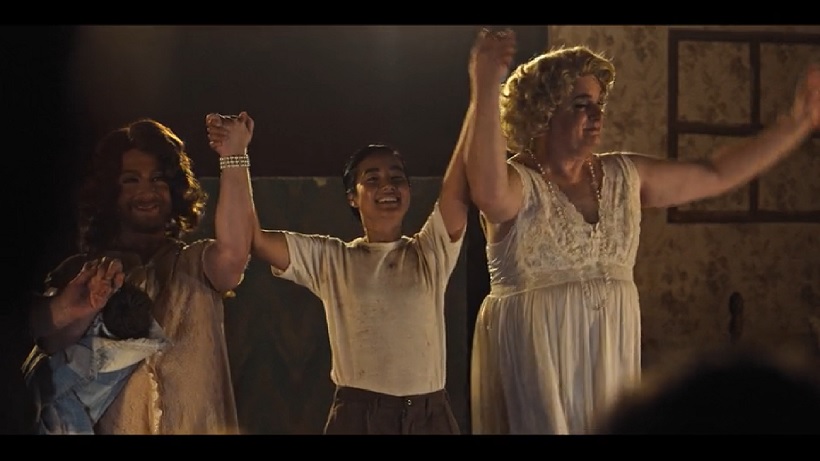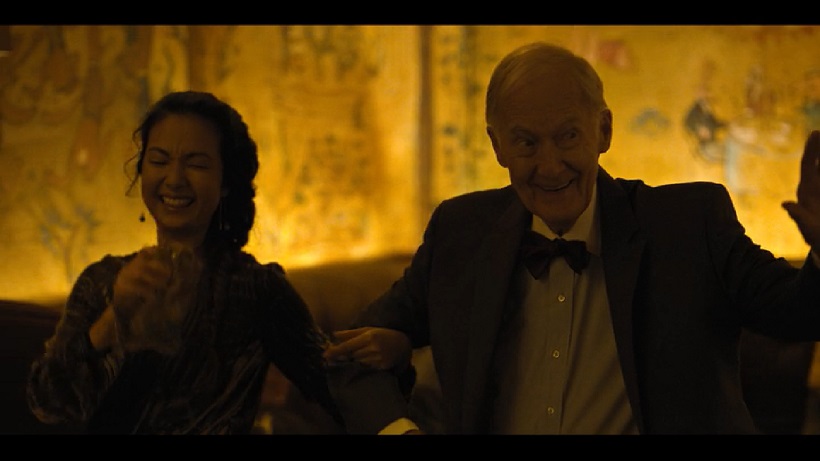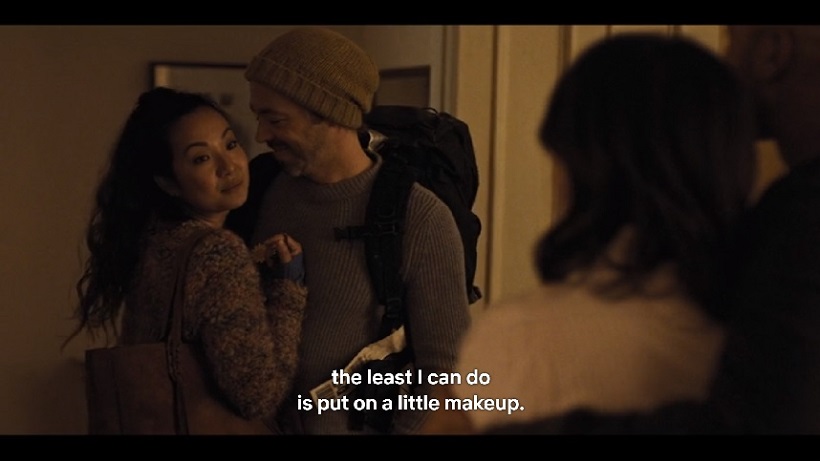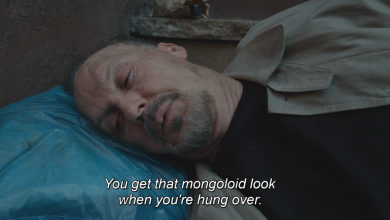“Friends From College” Subverts Some Stereotypes, While Perpetuating Others

Friends From College – a two-season Netflix dramedy series about a group of Harvard alumni navigating life in New York City in their 40s – has received mixed reviews for its uneven approach to comedy and the “unlikeability” of many of its characters. The show’s treatment of racial diversity, however, has not been a topic of discussion (presumably because the show itself shies away from making any overt statements about race in America). Friends From College should be lauded for presenting a relatively unconventional and anti-stereotypical Asian American character in the form of Jae Suh Park’s Marianne, but it unfortunately also perpetuates the longstanding Hollywood tradition of pairing Asian women with white men (while erasing Asian men from the narrative).

While Marianne is established as a minor component of the “friend group” from the outset, the show does allow Park to shine during moments of irreverent comedy. As The A. V. Club’s Jesse Hassenger observes in his review of episode 4 from season 1, Marianne is a “sort of a catch-all unhelpful oddball character who can be plugged into different situations as a convenience, but Jae Suh Park plays her well enough that I don’t really mind the contrivances”.
In the tradition of economically unrealistic New York sitcoms, Marianne owns a spacious apartment and appears to have no financial woes despite earning her living as a part-time yoga instructor and part-time stage actress. She may be a Harvard graduate, her work ethic is undoubtedly antithetical to the model minority stereotype. When Lisa complains about her new job as a hedge fund lawyer, Marianne advises her to quit and says “I leave jobs after one week all the time …I quit temp jobs all the time. And I get fired all the time.”

Marianne performs in a gender-bending performance of “A Streetcar Named Desire”.
After assuming the role of Stanley Kowalski in a gender-bending staging of A Streetcar Named Desire in episode 2 of season 1, Marianne’s anti-stereotypical characterization comes to a halt. In the next episode, she visits a jazz bar with Lisa and Sam. Sam considers it to be one of her favorite places in New York because “the drinks are incredible and I’m always the youngest girl in the room”. When she offers to pay for Marianne and Lisa’s drinks, however, Marianne scoffs and says “Nobody’s paying for anything tonight. One of us still knows how to be single.” Sam and Lisa take her cue and pretend to be “singer-models” so that the aging (and presumably wealthy) patrons of the bar pick up their tab. They both go so far as to perform a seductive rendition of “Lady in Red”, but they are shocked to see Marianne take leave with one of the old white men they were talking to as they sing.

Marianne waves goodbye to Sam and Lisa as she exits the jazz bar with an old white man.
The pattern of exclusively pairing Asian women with white men then continues (this is not to say that Marianne’s love life is a major part of it). In episode 6 of season 1, it is revealed that she has an off-and-on boyfriend in the form of Tag, an Australian surfer, BASE jumper, and general daredevil who visits her “a couple of times a year”. He accompanies her to a fellow Harvard alumnus’ second wedding before disappearing from the show (following an argument with Marianne, who angrily rejects his wedding proposal because she is opposed to the idea of marriage).

Tag reappears exactly one season later (in episode 6 of season 2), where he unceremoniously falls to his death when a BASE jumping stunt goes wrong.

Marianne presides over Tag’s funeral in season 2.
While Friends From College deserves credit for departing from the all-white ensemble that has traditionally dominated similar sitcoms and dramedies, it is worth noting that it still resorts to a very narrow idea of racial diversity. Myra Washington, an associate professor who specializes in both Asian American and African American studies, has argued that the selective inclusion of Black male characters and Asian female characters in white-dominated TV series “are deeply rooted in historical stereotypical representations of Black masculinity and Asian femininity.” Meanwhile, the invisibility of Asian men (and black women, in this how) as heterosexual love interests also perpetuate notions of their undesirability and unsuitability as romantic partners (even for Asian women).
P.S. You can contact the show’s creators – Francesca Delbanco and Nicholas Stoller (@nicholastoller) – on Twitter to voice your concerns.
-
OFFENDER: Netflix
CATEGORY OF OFFENSE: Denigration ( Reinforces Stereotypes)
MEDIA TYPE: TV Show
OFFENSE DATE: January 1, 2019





